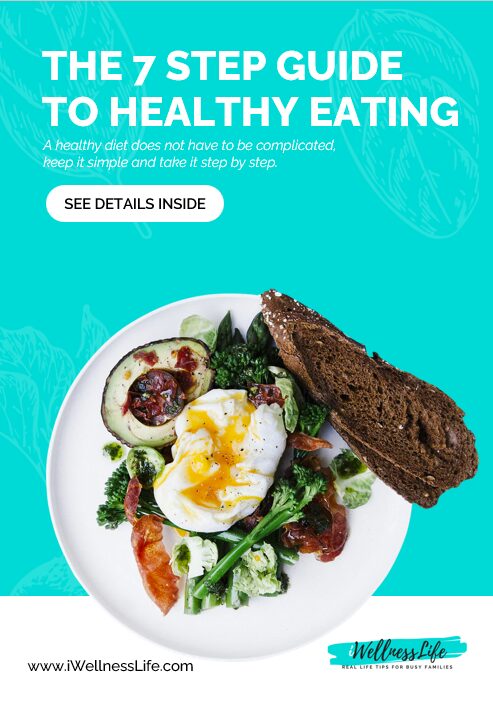There just doesn’t seem to be enough hours in the day to accomplish everything you need to do. And it can feel like an added stressor when you are trying to integrate healthy habits into your already hectic schedule. But if you make time for healthy habits, you’ll find yourself with extra reserves of energy that will lower your stress and make you feel like you have more time. Here are a few things you can start doing right now to make healthy habits a relatively painless part of your routine:
- Drink water throughout the day. You don’t hear this nearly enough: water is an all-purpose wonder-substance. It’s great for your skin, your digestive system, and circulatory system, and aids in weight loss and cellulite reduction. If you feel fatigued during the day, it’s often because you aren’t hydrated properly. Drink water throughout the day, sipping from a large bottle or glass. If you have it nearby, it’s easy to remember. If you don’t like the “taste” of water, keep a supply of lemon so that you can add a slice
 to your water – it cuts any bitterness, adds a bit of vitamin C and makes it taste more festive!
to your water – it cuts any bitterness, adds a bit of vitamin C and makes it taste more festive!
- Cut back on the amount of soda and coffee you drink. Sugar and caffeine dehydrate you and create energy rushes followed by crashes, which are ultimately energy-depleting. Substitute with drinks like green tea or 100% fruit juice.
- Replace high-sugar foods with low-sugar versions. Cutting back on the amount of refined sugar you consume helps reduce calories and weight gain and also helps you avoid the energy slumps that come from sugar withdrawal. Items high in refined sugar include most soft drinks, cereals, baked goods, and of course, candy and ice cream. Look for low-sugar or no-sugar versions of these, or simply opt for healthy snacks instead.
- Stock up on healthy, portable snacks. When you are grocery shopping, pick up bags of baby carrots, string cheese, nuts, fresh and dried fruit, single serving packs of applesauce, yogurt, wholegrain crackers, peanut butter, turkey jerky, etc. Having healthy portable snacks around will help you avoid bad vending-machine, convenience store and fast-food options.
- Take the time to plan healthy meals for the week. Spend 15 minutes or so to map out your meals. Keep it simple. Then, when you shop for groceries, make your purchases based on the meals you will make during the week. This will help you avoid relying on less healthy take-out or fast food choices.
- Purchase frozen, ready-to-cook ingredients. Frozen fruits and vegetables have high vitamin and mineral content because they don’t sit around losing these nutrients for long before they are preserved. Although you’ll want to keep plenty of fresh fruits and vegetables around, it’s great to have frozen produce available for quick meal additions and smaller servings. Also, some grocery stores offer frozen boneless chicken breasts and a wide variety of seafood items in resealable packages. These are great for quick, healthy meals.

- Pack your lunch the night before. You’ll have given yourself the gift of extra time in the morning and you will assure that you have a healthy meal during the day. Don’t forget to pack snack items so you can avoid the vending machine.
- Cook double batches of whatever you’re cooking. When you prepare dinner, especially on weekends, cook extra and freeze to use for another dinner or lunch. Then, you’ll have a healthy meal ready to go when you are.
- Give yourself some slack. If you are stressed out about preparing healthy meals every day, use what some experts call the “80/20” rule in your eating. If 80 percent of what you eat is healthy, then allow yourself to take it a little easier for the remaining 20 percent. You and your diet will survive.
- Fit in exercise whenever you can. Experts recommend that adults exercise a minimum of 30 minutes three times per week. Aim for this amount, but don’t kick
 yourself if you can’t meet this goal. Any amount of exercise is better than none. No time to go to a gym? Build a stock of exercise tapes – many have routines that you can complete in 20-40 minutes. Use hand weights or do crunches, leg-lifts and lunges while watching television. Or invest in an exercise bike – you can pedal while catching up on your reading. Think of what would be most interesting to you and what best fits your schedule and budget.
yourself if you can’t meet this goal. Any amount of exercise is better than none. No time to go to a gym? Build a stock of exercise tapes – many have routines that you can complete in 20-40 minutes. Use hand weights or do crunches, leg-lifts and lunges while watching television. Or invest in an exercise bike – you can pedal while catching up on your reading. Think of what would be most interesting to you and what best fits your schedule and budget.
- Take a walk break during the day. Even 20 minutes can make a difference in your energy level, plus it gives you time to clear your head. If you walk with a friend or colleague, it also gives you time to socialize.
- Whenever possible, walk. Increase the amount of time you can walk, versus sit or drive. It doesn’t take that much extra time to park a bit farther from the store entrance, or to make a personal visit to a colleague rather than phoning, instant messaging or e-mailing.
- Get enough sleep. Even if you gain more time in your day by cutting back on sleep, you
 will be less effective throughout the day, as your energy level and cognitive functioning will be reduced. Insufficient sleep also makes you more susceptible to illness. By getting enough sleep, you become more efficient during the time you are awake.
will be less effective throughout the day, as your energy level and cognitive functioning will be reduced. Insufficient sleep also makes you more susceptible to illness. By getting enough sleep, you become more efficient during the time you are awake. - Write it all down. Having a spacious calendar or easy to access book to organize and write all your plans and appointments down in one place will save yourself tremendous amounts of time. You’ll be surprised how much time and energy is wasted trying to remember what you have to do. You can be much more efficient scheduling activities in the best order, and this can be helped by seeing it all laid out.
Begin integrating some or all of these habits today. Make them part of your normal routine. You’ll be surprised at how little time is involved and how much better you’ll feel!

Subscribe To Our VIP Newsletter
Join our VIP mailing list to receive additional content that goes even deeper into the latest tips to ensure you and your families health, fitness and wellness.























